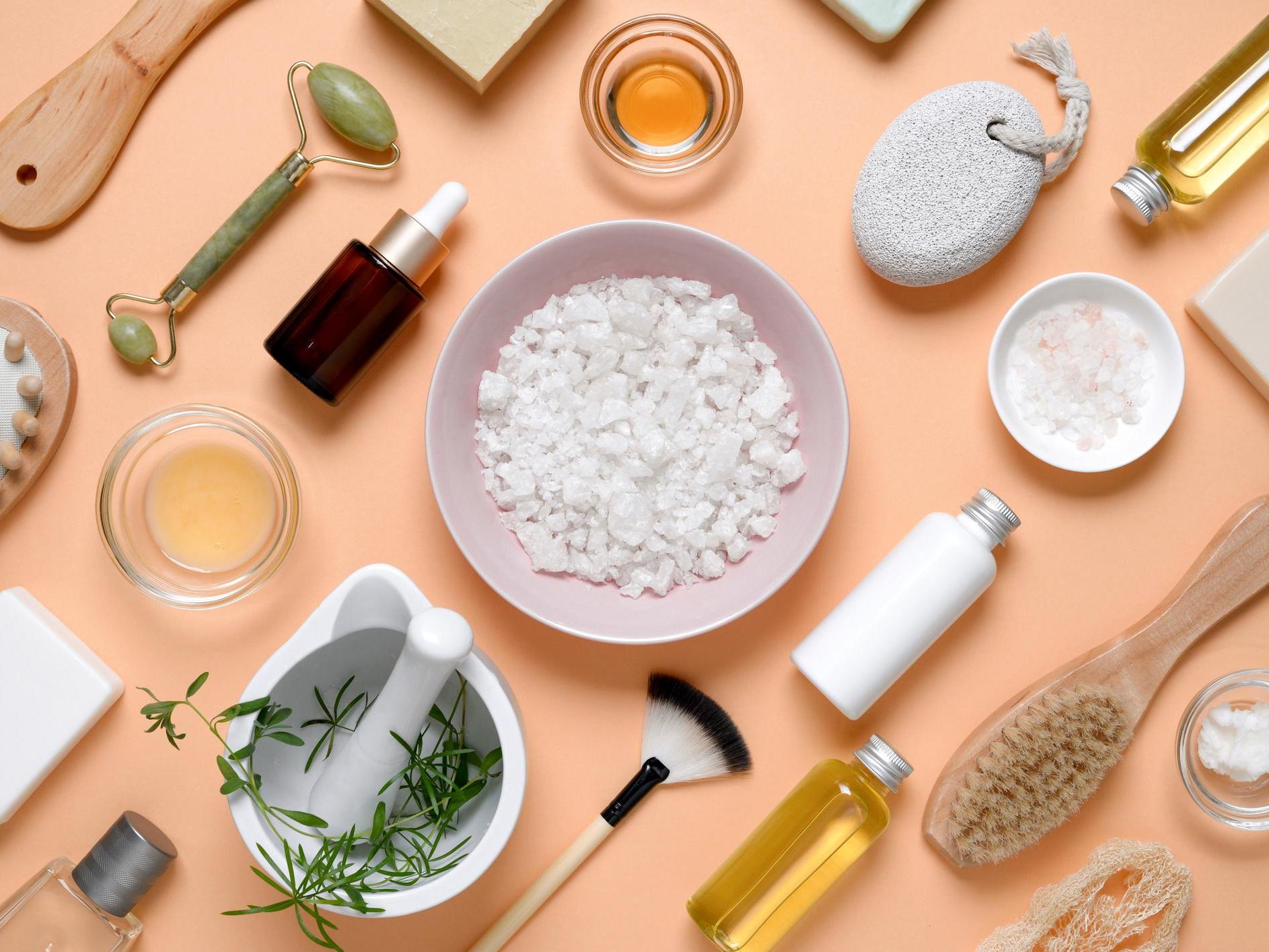20 pledges for 2020: My new natural beauty routine is clearing space in my life, as well as my cupboards
Truly ethical and sustainable beauty brands aren't easy to find. Can Jessica Jones go a whole year without using anything else?

Lockdown for me has been a time of slowing down, appreciating what I have and simplifying my life. I’ve cleared out, cleaned up and generally decluttered my life. But it hasn’t stopped at just sorting through my overflowing wardrobe and my messy bedroom – I haven’t worn makeup properly for almost two months, I’ve had time to reconsider what beauty products I actually use and really need, compared to those which I thought would be entirely necessary but, in reality, have barely been removed from the packaging.
Trying out a more minimalist beauty routine has not only made space in my bathroom drawers and my stuffed makeup bag that hasn’t zipped up for longer than I care to remember, it has also made space in my life. Less time spent on morning and evening routines means more time for other things. A simpler routine has also improved the sustainability of my personal care and beauty products.
I've tried many new things from a face-wash bar with no packaging, recycled coffee grounds in an airtight glass jar already in a kitchen cupboard to a homemade toner in a glass bottle - as well as bamboo cotton pads, shampoo and conditioner bars for my hair, moisturising facial and hair oils also in glass bottles. In reducing the type and number of products I use I have cut out almost all the plastic packaging that was in my daily beauty routine. There are a few exceptions, for example, products which I bought before I began my pledge and which it would be more wasteful to throw away than to simply just use them up and recycle them properly.
In our busy consumerist culture, products are constantly marketed towards our brains which have been wired to always want more and the latest new item, only slightly different from one we already have, as soon as it hits the shelves. But what if this time spent slowing down our pace of life has helped us to realise how much we already have, and just how much of it is unnecessary?
Whilst going completely Marie Kondo might not be for everyone, it’s likely that in clearing out you may have found untouched or unopened products which you forgot you even bought (and maybe wonder why you bought them in the first place). The good news is that you can turn your buyer’s remorse into something more positive and save decent products from going to waste and clogging up landfill sites, by donating them to people who may need or will enjoy them.
Drop off your products for free with Droppoint and they will donate them for you (and you can donate much more than just personal care items through them as well!). Other organisations such as Toiletries Amnesty, The Hygiene Bank and Beauty Banks also help to deliver unused items to people desperately in need of general hygiene products.
Hygiene poverty is a massive issue in the UK, with over one-third of people and over half of 18-24 year olds having to go without or cut down on hygiene essentials. Coronavirus has only made matters worse. For many who struggled to get these products before, a pandemic that has taken away a job might mean choosing between a meal or a wash. So in addition to these hygiene banks, you could also try local shelters that are constantly in need of self-care products. The products you no longer want might not be anything special, maybe even just some toothpaste, deodorant or a body wash, but these essentials could be, well, essential for someone in need of them.
Subscribe to Independent Premium to bookmark this article
Want to bookmark your favourite articles and stories to read or reference later? Start your Independent Premium subscription today.

Join our commenting forum
Join thought-provoking conversations, follow other Independent readers and see their replies